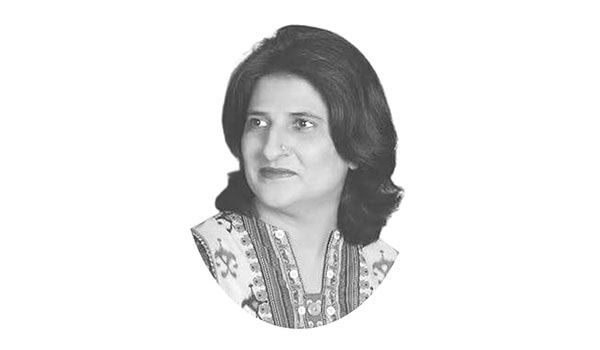National Legal Framework is needed to protect journalists
WHEN I went to Pakistan this year, meetings with my former colleagues, senior journalists and writers gave me the impression of alleged terrible media censorship and the horrific situation they faced during the last year of the PTI government.
They accused PTI leadership of their economic and social strangulation and further claimed that even self-censorship was not enough to survive in the unbearable circumstance they had been facing.
According to them, unfounded court proceedings, ruthless baseless defamation cases, thrashing by unknown persons, housebreaking and half-day to whole day abductions of journalists and writers had been the game for previous rulers.
I am not qualified to comment on the credibility of their allegations but surely understood that the situation was something extraordinary for Pakistani media.
During a long discussion with one of the most senior journalists and anchors of Pakistan, I told him about the overall media scenario in Europe.
I gave him my candid opinion that the freedom of expression Europe claimed in the last two centuries is under threat due to social media generated “cheapfake”, “deepfake” and fake news but European Union keeps an eye on issues and always tailors laws to ensure freedom of expression of journalists and always stand with them.
European population strongly believes that a free press can, of course, be good or bad, but most certainly without freedom, the press will never be anything but bad.
I wish to share with Pakistani journalists a development that can be very useful for those who are fighting for freedom of journalism in Pakistan.
Last week, the European Commission came up with some ideas to improve the protection of journalists and human rights defenders from abusive court proceedings and strategic lawsuits against public participation, commonly known as ‘SLAPPs.
European leaders are expressing their concerns about the increasing use of a form of litigation known collectively as SLAPPs – Strategic Lawsuits Against Public Participation.
This is stopping journalists to investigate and write about the abuse or misuse of power of public office bearers.
Journalists are calling SLAPPs an abuse of the legal process, where the primary objective is to harass, intimidate and financially and psychologically exhaust one’s opponent (mostly journalists and human rights defenders) via improper means.
The European Commission is working to tailor recommendations that will enable judges to swiftly dismiss manifestly unfounded lawsuits against journalists and human rights defenders.
The Commission will also establish several procedural safeguards and remedies, such as compensation for damages, and dissuasive penalties for launching abusive lawsuits.
The Commission is also adopting a complementary Recommendation to encourage Member States to align their rules with the proposed EU law also for domestic cases and in all proceedings, not only civil matters.
The Recommendation also calls on the Member States to take a range of other measures, such as training and awareness-raising, to fight against SLAPPs.
After reviewing the recommendations, I am sharing some points that Pakistani media rights leadership should plan with a multiparty government and a National Legal Framework can be announced based on recommendations I found useful for Pakistani media to safeguard against legal subjugation.
Recommendations include early dismissal of manifestly unfounded court proceedings, the burden of proof will be on the claimant to prove that the case is not manifestly unfounded; it will be for the claimant to bear all the costs, including the defendant’s lawyers’ fee if a case is dismissed as abusive; a right to claim and obtain full compensation for the material and immaterial damage faced by the defendant (journalists etc); the courts will be able to impose dissuasive penalties on those who bring such cases to the court.
George Orwell in his famous novel “Animal Farm” published in 1944 writes that unpopular ideas can be silenced, and inconvenient facts kept dark, without the need for any official ban.
By saying “unpopular ideas” he means such ideas that are not supported by the state and people in power.
He further says that Freedom of the Press, if it means anything at all, means the freedom to criticize and oppose.
I comprehend that the fake news trend is not only lethal for democracies rather media practitioners all over the world because sometimes they become victim of social media fake news by using them as lead for information.
In the world of fake news, the responsibility of media practitioners is more important because the only security of all is in a free press as said by Thomas Jefferson who was an American statesman, diplomat, lawyer, architect, philosopher and 3rd President of the United States.
—The writer is a Prague-based author, columnist and foreign affairs expert who writes for national and international media.










